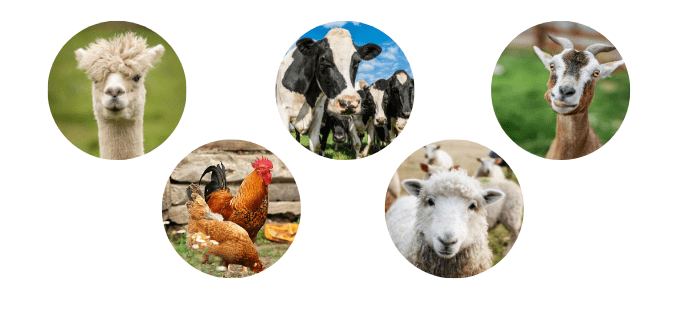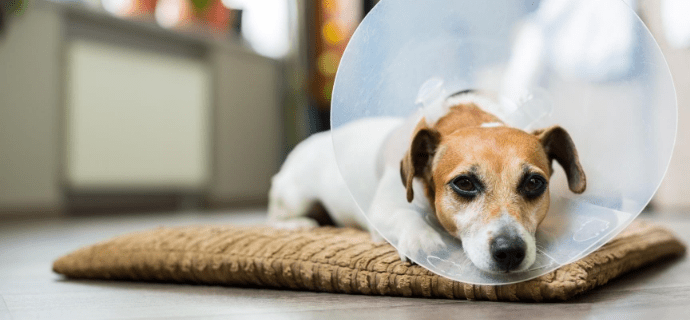What your Dog really Wants when you Go Away

If your dog could speak, where would he want to stay while you’re away?
Whether a business or pleasure trip, sometimes it’s not pawsible to take your fur friend along. So what are your options?
- Kennels
- He stays with a dog walker
- A surrogate pet parent lives in
It would be great if your four-legger could tell you which they prefur. But since he can’t put this into words, let’s look to animal psychology for some answers.
Sense of Security
What does a cat spraying and a barking dog have in common? These are both ways of proclaiming that this is their turf.
To animals, even domestic pets, territory is all important. Owning a territory goes right to the core of what makes a pet feel secure. Indeed, this is the principle behind crate training a puppy with that space being their den, their safe place; and so you see the value of territory.
We are perhaps more aware of this with cats, which are traditionally more bonded to places rather than people. Behaviours such as scratching carpets and rubbing cheeks along the sofa are all about transferring pheromone markers that amplify their ownership. But what about our dogs’ home space?
Dogs are more adaptable than cats, but prefer only one thing to change at a time. Thus the dog travelling with their pet parents usually copes well, especially when walks and mealtimes stay on schedule. However, when everything happens at once, such as being away from home with no owner, and an unfamiliar routine, then some dogs are left feeling lost and bewildered.
Let’s consider what other impacts change can have on a dog.
Home or Away?
When transferred to a kennel, everything in the dog’s world changes in one dizzying swoop. His pet parent is gone, so is his core territory, and sense of routine. Little wonder then that some dogs find it hard to adjust and go on hunger strike. When the pet remains at home, they lack your company but everything else remains reassuringly the same around them. They have only to sniff a favourite scent marker to know all is well. It’s a bit like putting up a giant poster written in doggish that proclaims “We will return.”
The Reassurance of Routine
To our pets, routine is king. They thrive on the predictability of life; of knowing that meals happen regularly and on time, when to expect a walk, and when it’s time to settle down for a sleep. (Dog napping takes quite some planning!) A change of routine is a major stresser for a pet. Indeed, when a beloved canine companion passes away experts tell us to keep the remaining pet in routine, as a way to reassure and keep them on track. So again when you can’t be there in person your dog will cope much better when meals, walks and bedtime all happen on schedule. A kennel’s timetable is unlikely to match that of the dog’s home life, so this can add up to stress.
Clear up Confusion
Older pets are less adaptable. Failing sight or hearing mean they more readily feel disorientated or confused. A dog with poor vision relies heavily on those familiar scent markers to navigate his way around. Likewise the texture of a certain rug under the paw and knowing where his food and water are, go a long way to help him cope. Take that dog out of a familiar landscape and he may struggle and become distressed.
Special Needs
From a puppy who needs consistency for house training to the senior who is diabetic, all are pets are individuals. In an ideal world that one-to-one care that you provide, would continue in your absence. In pawticular, pets with ongoing health issues need close monitoring. Take a diabetic dog for example. Knowing what they normally eat or drink, and what his habits are, makes it much easier to spot changes from the norm. Recognizing these early on can give vital clues that he’s destabilising and needs veterinary attention. However, that same diabetic dog in an unfamiliar place is already out of routine. How much harder does it become to spot a problem? This carries the risk that an easily corrected issue could spiral out of control before it’s spotted.
What can Animal Behaviour Tell Us?
Your dog doesn’t speak English but he can still tell you what he wants. From a behavioural and psychological point of view, dogs are happiest at home, sticking to a familiar routine with someone to watch over them. Of course this doesn’t mean a kennel is a bad option just that it takes some thinking about and isn’t for every dog. On the other paw, a surrogate pet parent who moves in to cover your absence means your trip away has a happy ending and that tail keeps on wagging. And finally, the important thing is arrange responsible provision for your pet whilst you’re away. There are no right or wrong choices, but when considering what your dog really wants…think about it from a dog’s eye view.
About the Author
Ripley the dog knows all about how to gain a dog’s trust. He is a chocolate labradoodle and lives in Surrey, UK. His time is shared between walks in the countryside, his pet family and his time as the lead editor for Doggy Dream Team, an online community for those who lap up all things canine.
You’d be barking not to visit!
Filled under: Animal Aunts, Dog Sitting, Dog Training
Tagged with: Animal Aunts, dog sitters, Dog-Sitting, House sitting








